Health fact sheets
Are you a family member, friend or supporter of a person with intellectual disability? Our health fact sheets can help.
Learn how to navigate health services for people with intellectual disability. We have fact sheets covering 30 topics. Browse each topic on this page, or download a file containing all fact sheets combined.
Important: We have lots of information and tips about Coronavirus. Go to our COVID-19 page.
Our Easy to read health info guides have lots of great information and tips about health, all easy to read. View our info guides
We are working to improve health outcomes for people with intellectual disability. Check out our work at our health issue page.
Diagnosis and assessment of a disability
-
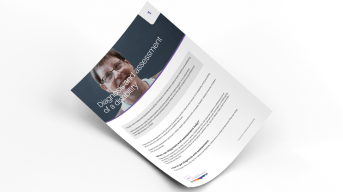
Diagnosis and assessment is the process of working out the nature and cause of a disability and providing advice about the person’s needs and available services.
Children – signs of illness
-
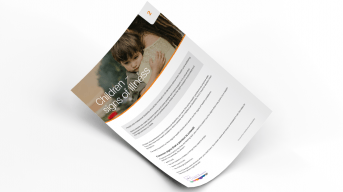
Children and adolescents with intellectual disability can have the same health problems as anyone else. They often have more health problems.
It is really important to have regular health checks and watch out for signs of health problems.
Children – what kinds of health services are there?
-
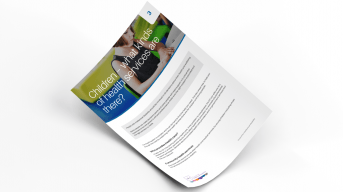
The health system is complex, and it can be hard to find the help you need. This fact sheet tries to help you through this maze by explaining what health services there are for children and young people.
Adults – signs of illness
-
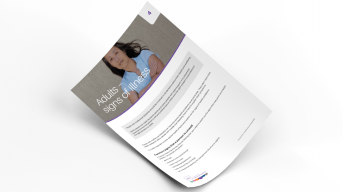
Many people with intellectual disability find it hard to explain their symptoms.
It is really important to have regular health checks and watch out for signs of health problems.
See also our easy to read info guide Some signs of sickness.
Adults – what kinds of health services are there?
-

It can be hard to find the help a person with intellectual disability needs.
This fact sheet tries to help you through this maze by explaining what health services there are.
Ageing and health
-

Older people with intellectual disability have the same range of health problems as all older people, and many develop age-related problems at a much earlier age.
You should watch for any signs that a person’s health is deteriorating.
End of life care
-

Sometimes, medical treatment is not offered to people with intellectual disability because of doctors’ views about their quality of life.
Family and support workers may need to be educators and strong advocates in these situations.
We also helped NSW Health develop Easy Read booklets on death, dying and palliative care.
Healthy lifestyles
-

A healthy lifestyle includes a good diet, regular exercise and rest. People with intellectual disability have higher rates of obesity and get less exercise than the general population.
See also our Tips to mental health Easy Read information guide.
Annual health assessments
-
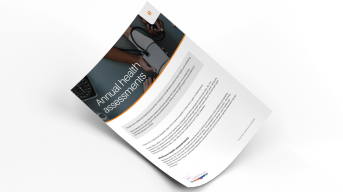
It is important for a person with intellectual disability to have a thorough health assessment each year. Annual assessments, which are paid for by Medicare, can show up health problems that no one knew about.
Preventive health
-

Preventive health strategies aim to prevent illness or diagnose and treat it early. For example, immunisation and regular health checks.
People with intellectual disability should receive the same preventive health care as the rest of the community.
Dental care
-

People with intellectual disability are at high risk of dental disease. This can be due to poor dental care and poor mouth hygiene, which can lead to other health problems.
Challenging behaviour and health
-

Challenging behaviour means that something is not right for the person.
A behaviour support practitioner can help. It is also important for the person’s doctor to check for any health problems causing the behaviour.
Mental health
-
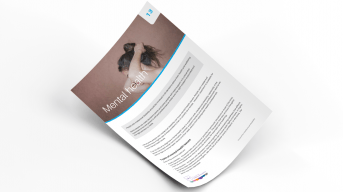
It can be difficult to diagnose a mental health issue in a person with intellectual disability, especially if the person has limited verbal communication.
See also our easy to read information guides
Alcohol and other drugs
-
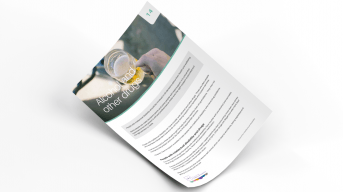
It can be very hard for people with intellectual disability to get the help that they need for their drug problems. They may not recognise the problem and it can be hard to find appropriate services. However, supports are available.
Causes of intellectual disability and health care
-
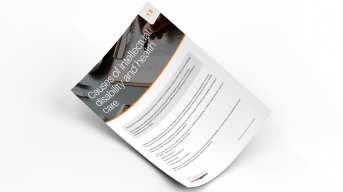
Knowing the cause of a person’s intellectual disability can help professionals advise how the person will develop and how to meet the person’s needs.
Sexuality
-

All people have the right to make choices about relationships. People with intellectual disability often need information and support to help them make decisions about relationships and sexuality.
Contraception
-

People with intellectual disability have the same choices about contraception as other people. But, they will often need clear information and support to make choices.
Managing menstruation
-

Managing periods is not a problem for most women with intellectual disability. But for some, it can be complicated. Women with intellectual disability often need clear information and support to make choices about their periods.
Finding the right doctor
-

We all need a good GP who we feel comfortable with. This is even more important for a person with intellectual disability who may not be able to explain symptoms and may feel anxious about visits to the doctor.
See also our easy to read info guide Finding a new doctor.
Going to the dentist
-

People with intellectual disability should go to the dentist at least every six months. Many people find it hard to tell the dentist that they have a toothache or sore gums. They may be anxious.
It is important to find a dentist who has the right skills to treat people with intellectual disability.
Specialised intellectual disability health services
-
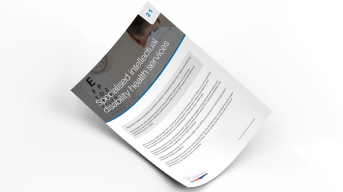
Sometimes GPs and other mainstream health professionals struggle to diagnose and treat people with intellectual disability.
A health service that specialises in working with people with intellectual disability may be needed.
Getting the most out of Medicare
-

For many people, Medicare covers much more than just going to the doctor when they are sick. If you think that items in this fact sheet might be useful for a person with intellectual disability, take it with you when you go to the doctor.
Going to the doctor – tips and tricks
-

Most doctors are very busy and try to keep appointments as short as possible. So it is very important to be well prepared to make the most of a visit to the doctor.
Companion resource: My Health Matters folder.
See also our info guides with lots of easy to read information about doctors.
Helping the doctor understand the person
-

It is important to help the doctor communicate with the person with intellectual disability. It is also important that the doctor knows what the person is like when they are well.
Companion resource: My Health Matters folder.
See also our info guides with lots of easy to read information about doctors.
Personal health records
-
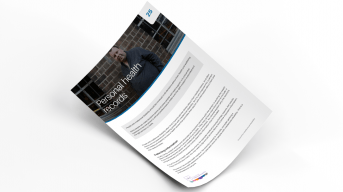
It is very important for a person with intellectual disability to have a health record that provides their doctor with information about them and their medical history.
Companion resource: My Health Matters folder.
Going to hospital
-

People with intellectual disability should receive the same quality of care in a hospital as anyone else.
If you plan the hospital visit carefully, the stay should go as smoothly as possible.
See also our easy to read info guide Going to hospital for surgery.
Health issues for families and support workers
-

Families and support workers often have high levels of stress. Meeting the needs of a person with intellectual disability can be very challenging.
There are many ways you can reduce stress and stay healthy.
Consent to medical treatment
-
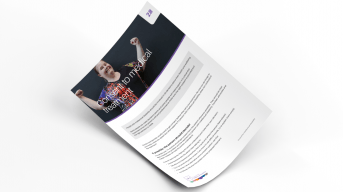
Doctors and dentists usually need to get consent before they carry out treatment.
No-one can do things to your body unless you agree. But what happens if a person with intellectual disability does not understand the treatment?
Rights and complaints
-
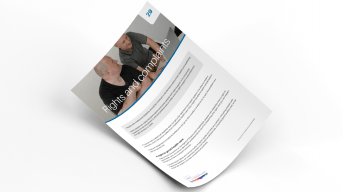
If a person with intellectual disability does not get a fair deal from the health system, it is okay to make a complaint. And if the person suffers from inadequate health care, they might be able to seek compensation.
See also Making a complaint about goods or services, our Info Guide in Easy Read.
More information
-

Useful links and information on key contacts in other states and key references for health professionals.
Please also feel free to call us on 1800 424 065.



 1800 424 065
1800 424 065 










